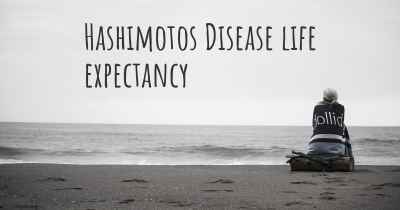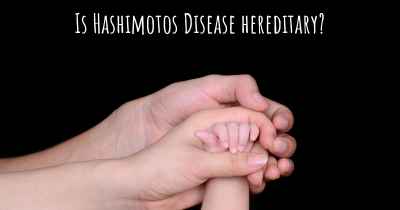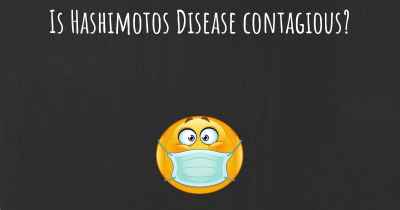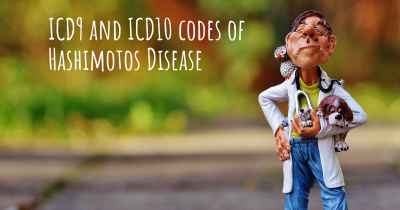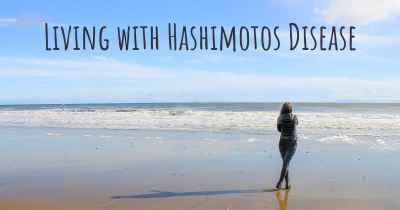How is Hashimotos Disease diagnosed?
See how Hashimotos Disease is diagnosed. Which specialists are essential to meet, what tests are needed and other useful information for the diagnosis of Hashimotos Disease

Diagnosing Hashimoto's Disease
Hashimoto's disease, also known as Hashimoto's thyroiditis, is an autoimmune disorder that affects the thyroid gland. It is the most common cause of hypothyroidism, a condition where the thyroid gland does not produce enough thyroid hormones. Diagnosing Hashimoto's disease involves a combination of medical history evaluation, physical examination, and laboratory tests.
Medical History Evaluation
The first step in diagnosing Hashimoto's disease is a thorough medical history evaluation. The healthcare provider will ask about the patient's symptoms, family history of thyroid disorders, and any other relevant medical conditions. Symptoms of Hashimoto's disease may include fatigue, weight gain, constipation, dry skin, hair loss, depression, and sensitivity to cold.
Physical Examination
During the physical examination, the healthcare provider will assess the patient's thyroid gland for any enlargement or nodules. They may also check for other physical signs such as dry skin, brittle nails, and swelling around the eyes.
Laboratory Tests
Thyroid-Stimulating Hormone (TSH) Test: The TSH test is the most common initial screening test for Hashimoto's disease. It measures the level of TSH in the blood, which is produced by the pituitary gland to stimulate the thyroid gland. In Hashimoto's disease, TSH levels are typically elevated as the body tries to compensate for the decreased thyroid hormone production.
Thyroid Hormone Levels: In addition to the TSH test, the healthcare provider may also measure the levels of thyroid hormones, such as thyroxine (T4) and triiodothyronine (T3), in the blood. These hormones are produced by the thyroid gland and are essential for regulating metabolism. In Hashimoto's disease, the levels of T4 and T3 may be lower than normal.
Thyroid Antibody Tests: Hashimoto's disease is an autoimmune disorder, meaning the immune system mistakenly attacks the thyroid gland. To confirm the diagnosis, the healthcare provider may order thyroid antibody tests, such as anti-thyroid peroxidase (TPO) antibodies and anti-thyroglobulin antibodies. Elevated levels of these antibodies indicate an autoimmune response against the thyroid gland.
Ultrasound: An ultrasound of the thyroid gland may be performed to assess its size, structure, and the presence of any nodules. Hashimoto's disease can cause the thyroid gland to become enlarged and develop nodules.
Fine-Needle Aspiration (FNA) Biopsy: If nodules are detected during the ultrasound, a fine-needle aspiration biopsy may be recommended. This procedure involves using a thin needle to extract a small sample of cells from the thyroid nodules. The cells are then examined under a microscope to determine if they are cancerous or benign.
Additional Tests
In some cases, additional tests may be necessary to rule out other causes of thyroid dysfunction or to evaluate the overall function of the thyroid gland. These tests may include:
- Radioactive Iodine Uptake (RAIU) Test: This test measures how much radioactive iodine the thyroid gland takes up from the bloodstream. It helps determine if the thyroid gland is functioning properly.
- Thyroid Scan: A thyroid scan uses a small amount of radioactive material to create an image of the thyroid gland. It can help identify areas of increased or decreased activity in the gland.
- Magnetic Resonance Imaging (MRI) or Computed Tomography (CT) Scan: These imaging tests may be ordered if there are concerns about the size or structure of the thyroid gland, or if there are suspected complications.
It is important to note that the specific diagnostic tests may vary depending on the healthcare provider's clinical judgment and the individual patient's presentation. A comprehensive evaluation is necessary to accurately diagnose Hashimoto's disease and differentiate it from other thyroid disorders.
Early diagnosis and treatment of Hashimoto's disease are crucial to prevent complications and manage symptoms effectively. If you suspect you may have Hashimoto's disease, it is important to consult with a healthcare professional for proper evaluation and diagnosis.
Posted May 27, 2017 by Lindsey 1100
Posted Oct 1, 2017 by Carolina_Tia 2050
Posted Oct 9, 2017 by Andrew 1300
Posted Oct 25, 2017 by Nicoletta 700
Posted Oct 26, 2017 by Chloe 400
Posted Sep 9, 2017 by Amelie 1000
Posted Oct 23, 2017 by Thaíla 500
Posted Oct 23, 2017 by Maria 2000
